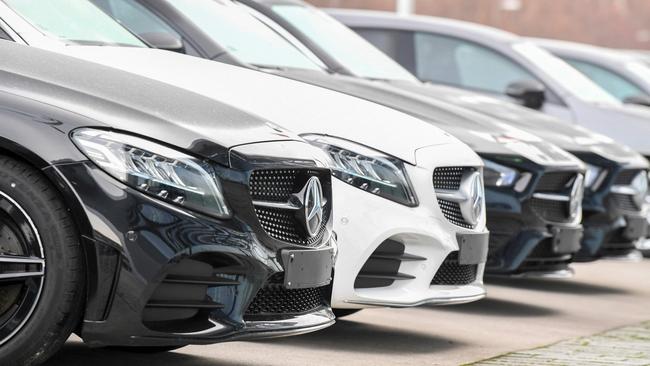Used car prices 37pc above pre-Covid highs
A global microchip shortage has cut the supply of new vehicles, fuelling demand for used cars as Australia’s economy recovers.

Used vehicle prices continued a “relentless path higher” in the first quarter of the year as Australia’s strong economic recovery, combined with new vehicle supply constraints, pushed the cost of a preloved car 37 per cent above pre-pandemic highs.
A report by Moody’s Analytics senior economist Michael Brisson shows that the average price of a second hand car lifted five per cent in the three months to March – the slowest quarterly increase in the past year, but a rate of growth above any quarterly increase in the decade prior.
It means the cost of a 2018 Toyota Camry sold at auction in NSW has increased from around $26,000 to just under $30,000 in less than a year, according to Moody’s data.
The price of a similarly aged Ford Ranger has lifted from $32,000 to around $39,000.
Mr Brisson said growth in the prices of used cars was directly linked to economic growth lifting demand for new cars above what the market is able to supply.
“Demand for vehicles has been boosted by a strong economic recovery. The Australian economy has jumped back quickly thanks to aggressive federal fiscal policy and successful control of the COVID-19 outbreak,” he said.
“Already-tight inventories have been stretched thinner as manufacturers around the globe grapple with a bottleneck of available semiconductor chips,” he said.
“Global auto production has been slowed by a shortage of semiconductor chips, which are increasingly prevalent in the modern automobile.”
Australian Automotive Dealer Association CEO James Voortman said a global shortage of semiconductor chips was being exacerbated by offshore car manufacturers struggling “to recover from factory closures brought on by the pandemic.”
“This has certainly had an effect on supply of used car market,” he said.
“Fewer new cars being sold means less trade-ins and fewer used cars for sale.
“There is also strong demand for used cars as people have increasingly turned away from public transport due to the virus and consider a second car for the family. “
However, Mr Brisson said he anticipated used car price growth to flatline as global supply issues are rectified.
“Prices of durable goods do not usually crash back like commodities,” he said.
“It takes time and energy for dealerships to go out and change the prices on vehicles.
“However, the market is overvalued and will take time to recalibrate.
“The most likely scenario for this recalibration is through an extended period of limited price growth over the medium term.”
Mr Brisson said spots of weakness were already apparent in the market, with ute prices falling in March as high fuel prices kept buyers at bay.



To join the conversation, please log in. Don't have an account? Register
Join the conversation, you are commenting as Logout